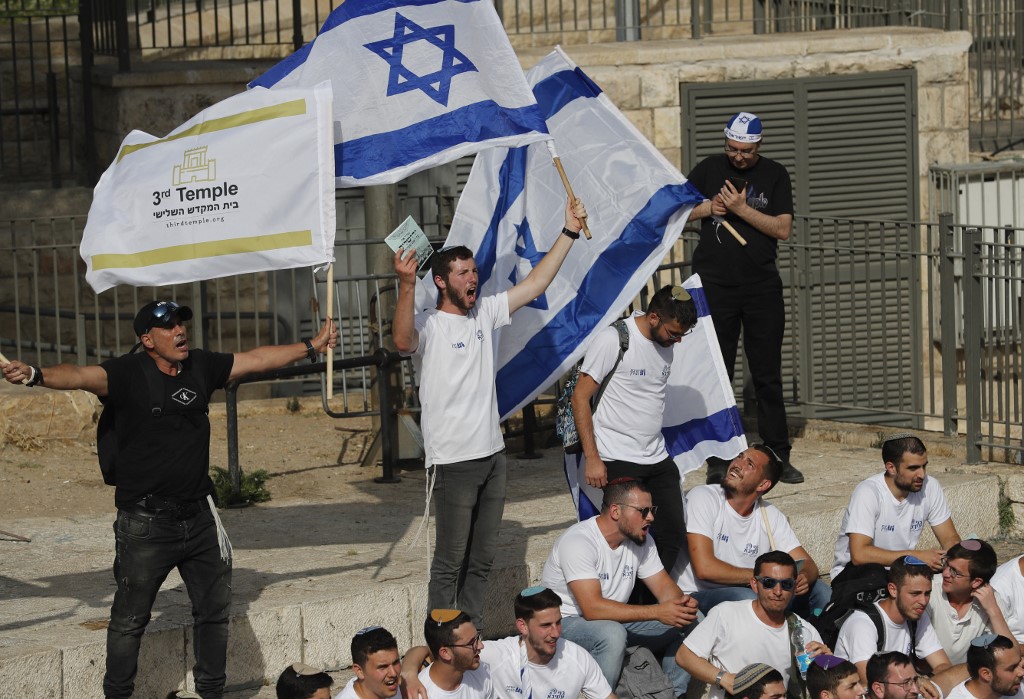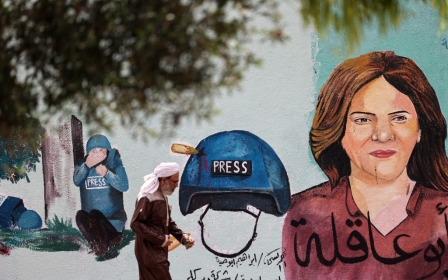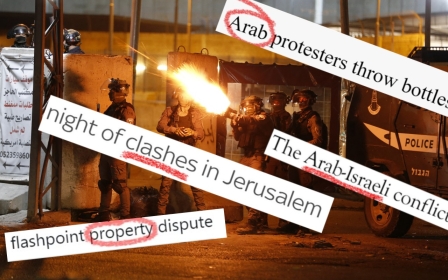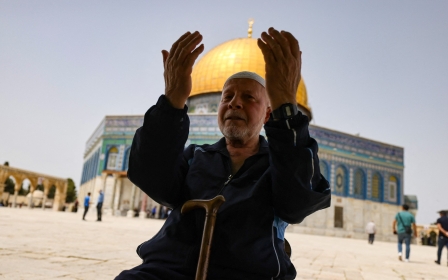Israel-Palestine: Would western media walk on eggshells if Arabs were chanting 'death to Jews'?
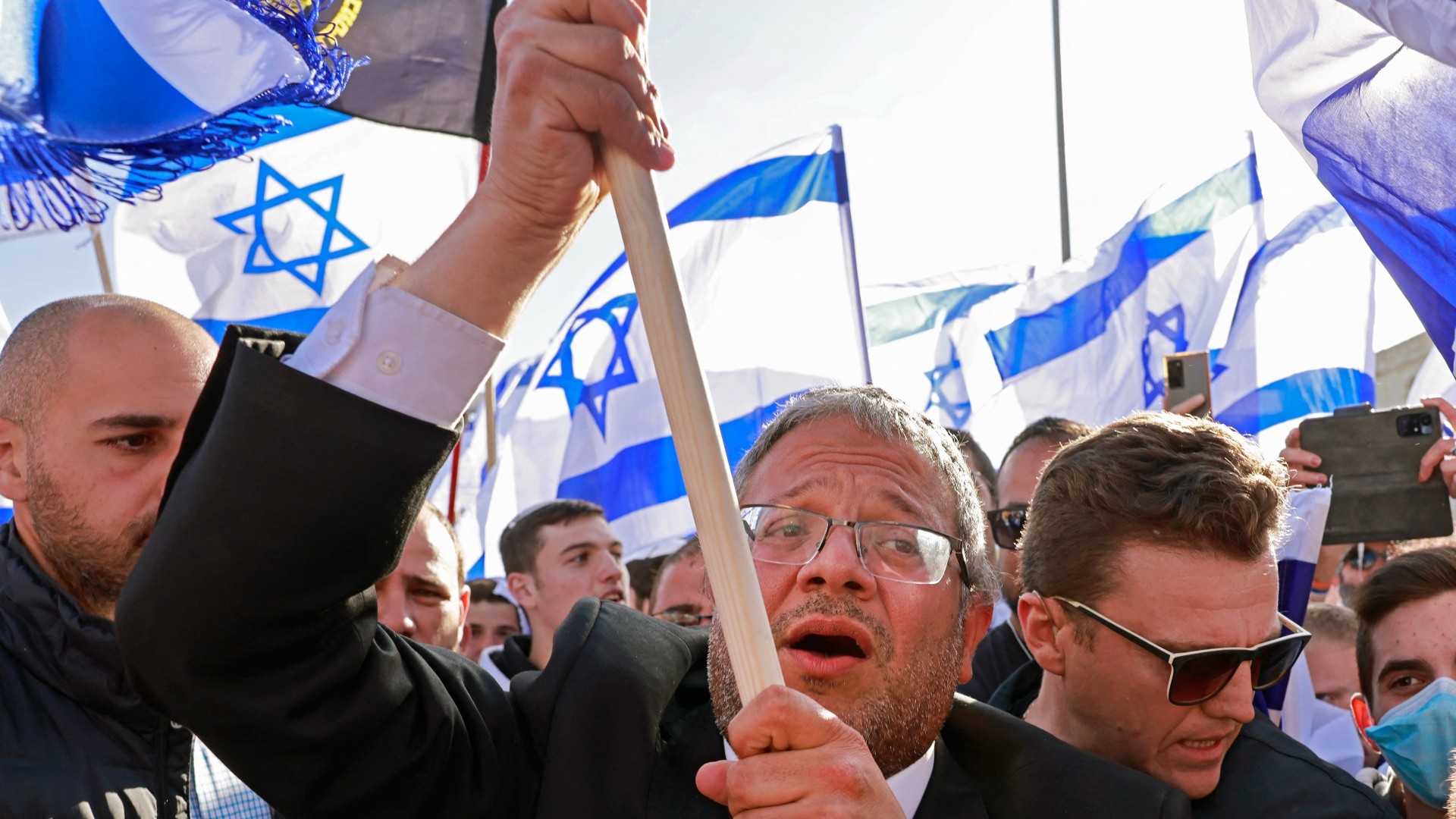
Horrific scenes unfolded across Jerusalem last month. Israeli police descended on the funeral of Al Jazeera journalist Shireen Abu Akleh, attacking mourners and those carrying her coffin. At the weekend, the Jerusalem Day "flag march" cemented its reputation as a showcase of anti-Palestinian hatred, bigotry and violence.
Palestinians need not be told any of this. It is their lived experience. If it is not Israeli soldiers, it is settlers beating them up, harassing them and burning their crops. Many of these settlers participated in the Jerusalem march.
Yet, to the outside world, Israel is presented as a freedom-loving democracy based on values shared with the West (which is perhaps true, if we’re talking about the Wild West).
Western media suffers from a routine inability to point out the asymmetry of the conflict between occupier and occupied
For years, the media has played a role in dampening legitimate criticism of Israeli actions and ignoring the Palestinian narrative. Global coverage of recent events has once again highlighted this failure. Let us take the BBC, a major broadcaster whose coverage of international issues is typically excellent, as an example.
A BBC news piece published at the time of the march bore the headline: “Jerusalem tensions high ahead of Israeli youth flag march.” While it did mention the occupation, a point often omitted from international coverage, it lacked other crucial contexts.
New MEE newsletter: Jerusalem Dispatch
Sign up to get the latest insights and analysis on Israel-Palestine, alongside Turkey Unpacked and other MEE newsletters
“The march traditionally sees thousands of young Jews, many waving Israeli flags, dance and sing patriotic songs as they stream through the patchwork of alleyways which run through the historic four quarters,” an initial version of the article stated, noting that Palestinians “view the event as a provocation”. It made no mention of the typical source of this provocation: racist, genocidal chanting by Israeli settlers.
Lines dropped
A later version of the article referenced an attack on a BBC crew, which “was verbally abused and forcefully shoved by two marchers, causing a cameraman to lose part of his equipment … Nearby Israeli forces stopped them but didn’t take further action”. The report also noted that marchers were chanting “death to Arabs”.
Incredibly, these lines were dropped from a subsequent version. The BBC offered no explanation to me, except to state that some material had been left out in the “updating process”. The lines later reappeared after complaints emerged.
A later version also included the chant: “May your village burn.” Of course, this didn’t go anywhere near the top of the article; it was tucked away in paragraph nine. And plenty of other racist chants - including “the second Nakba is coming soon” and “you will end up in refugee camps” - didn’t even warrant a mention.
The BBC told me that based on what their teams on the ground reported, the racist chanting was “widespread” but not omnipresent. While that is a fair description, widespread racist chanting should not be downplayed. This is not a case of a few rotten apples.
The BBC’s coverage of the 2021 flag march was similarly lacking, contrasting markedly with local media. The Times of Israel spotlighted the genocidal racism, highlighting the “death to Arabs” chant in its main headline. If there was a march where participants chanted “death to Jews”, would this not rightly be the focus of the BBC’s coverage?
When a group of men shouted antisemitic chants from a car in north London last year, the BBC covered the incident, referencing the abusive language right off the top and noting that police quickly arrested the suspects. Yet, in Jerusalem, Israeli police did not make one arrest for racist chanting - and most media ignored this fact.
Journalistic balance
Fairness, balance and professionalism in journalism would dictate that when Israeli Jewish marchers are chanting “death to Arabs”, this would be central to global coverage. It was not, nor were Palestinians given a voice on how this abuse made them feel. Western media suffers from a routine inability to point out the asymmetry of the conflict between occupier and occupied.
As for Abu Akleh’s funeral, the BBC noted that the slain journalist’s “coffin was jostled as Israeli police and Palestinians clashed as it left a hospital in East Jerusalem” - even as compelling video evidence, which was available at the time, showed Israeli police launching an unprovoked attack on mourners.
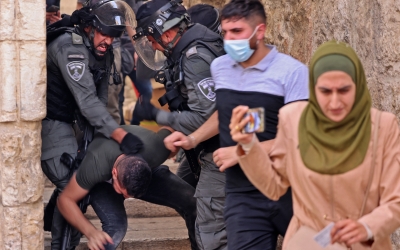
Following complaints, the article changed yet again, although it was still suboptimal: “Her coffin almost fell as [Israeli] police, some using batons, waded into a crowd of Palestinians gathered around it.” The video evidence is frighteningly clear; the coffin fell because Israeli police were beating pallbearers.
In fairness to the BBC, it does have a complaints process, and the articles did change. But it is the earliest versions that tend to matter most when people are reading about a developing story.
The BBC, and many other western outlets, walk on eggshells while covering this conflict. Coverage is peppered with passive language and indeterminate phrases, such as “clashes broke out” and “violence at reporter’s funeral”.
Ukrainian anger against Russian occupiers is covered in the context of a violent occupation. Israeli aggression against Palestinians is rarely covered through the prism of occupation, systemic discrimination and dispossession. Anti-Arab racism is real and widespread.
The failure to cover it properly, especially when it is so blatant, shows how much work the western media still needs to do.
The views expressed in this article belong to the author and do not necessarily reflect the editorial policy of Middle East Eye.
This article is available in French on Middle East Eye French edition.
Middle East Eye delivers independent and unrivalled coverage and analysis of the Middle East, North Africa and beyond. To learn more about republishing this content and the associated fees, please fill out this form. More about MEE can be found here.



